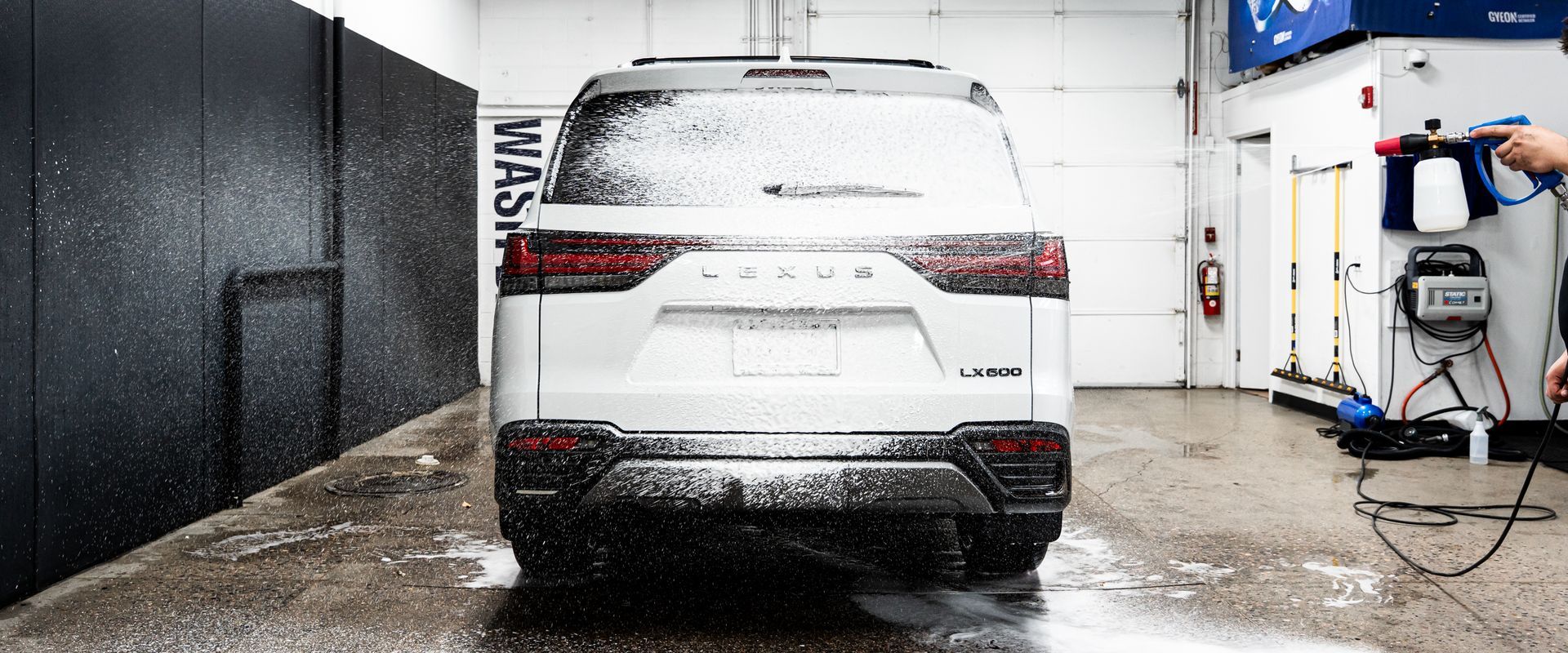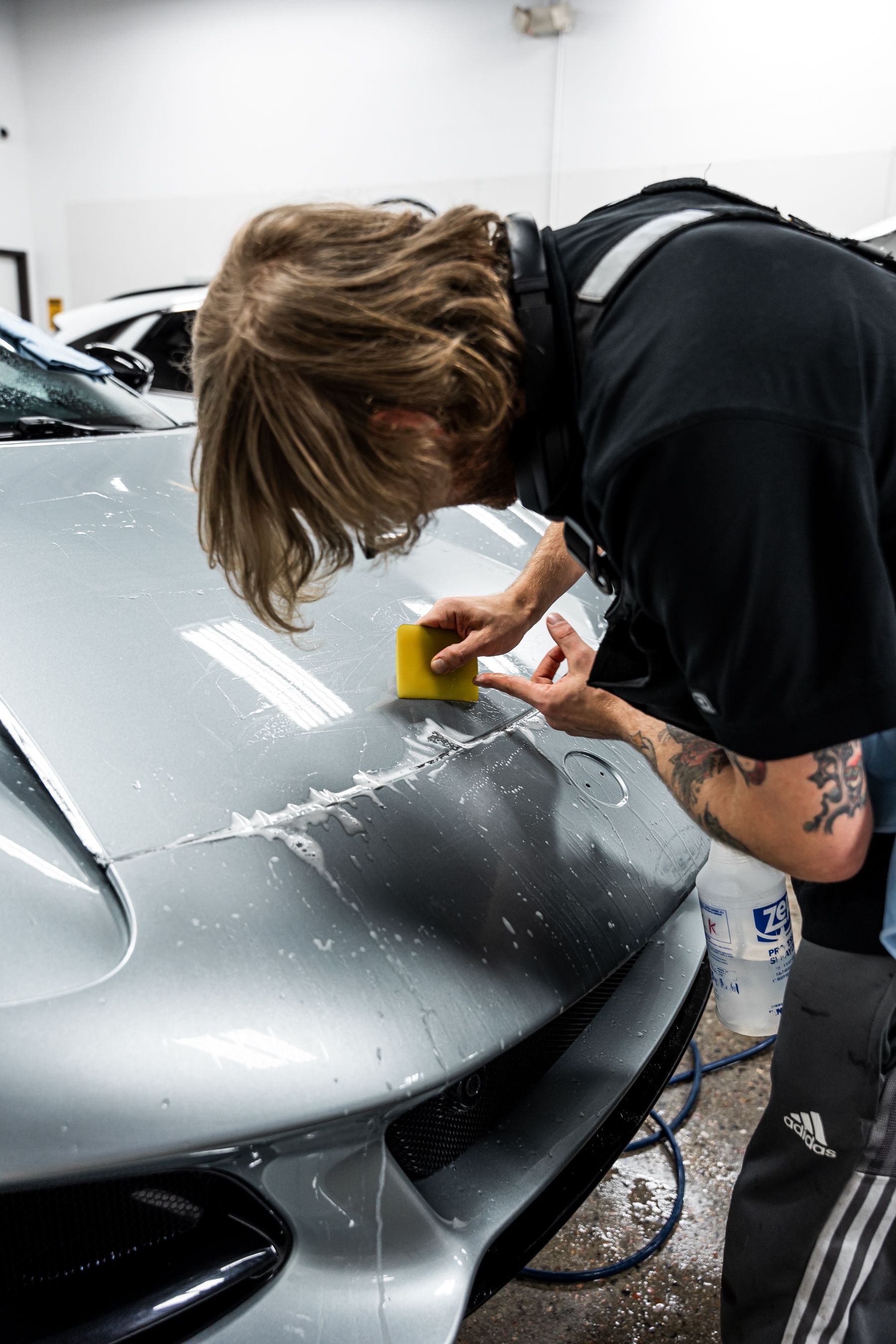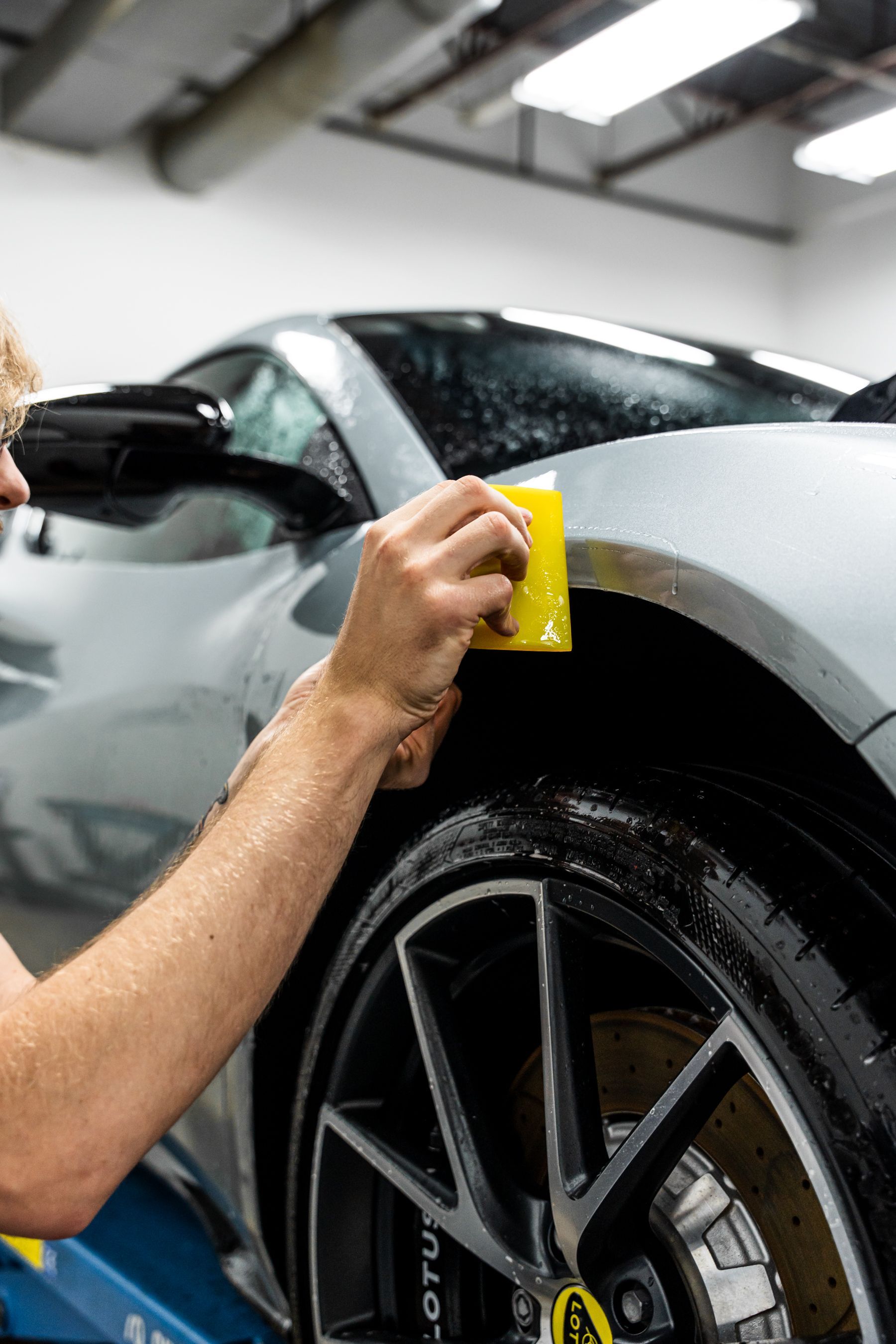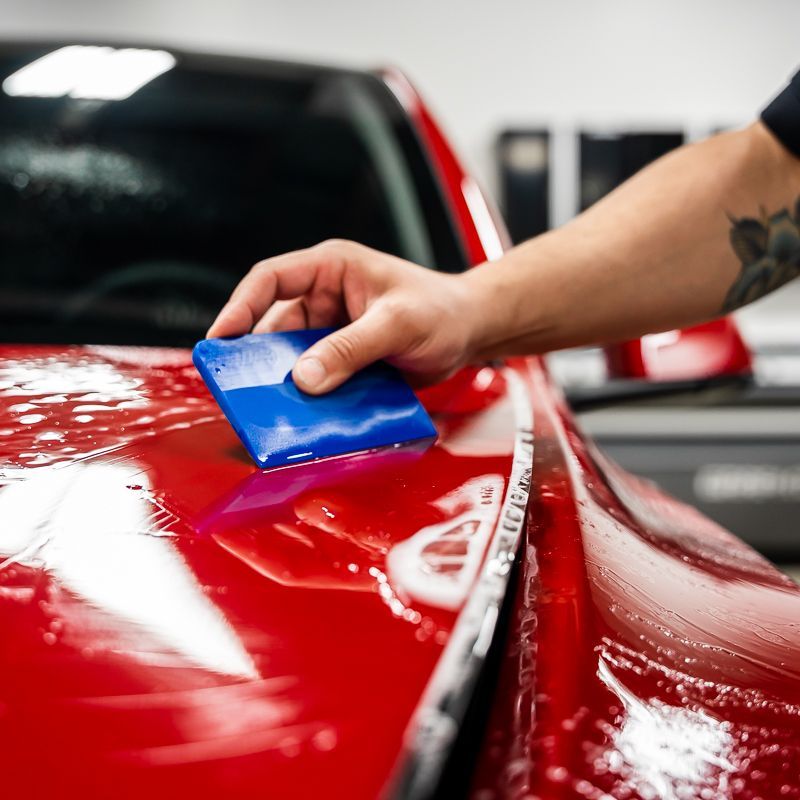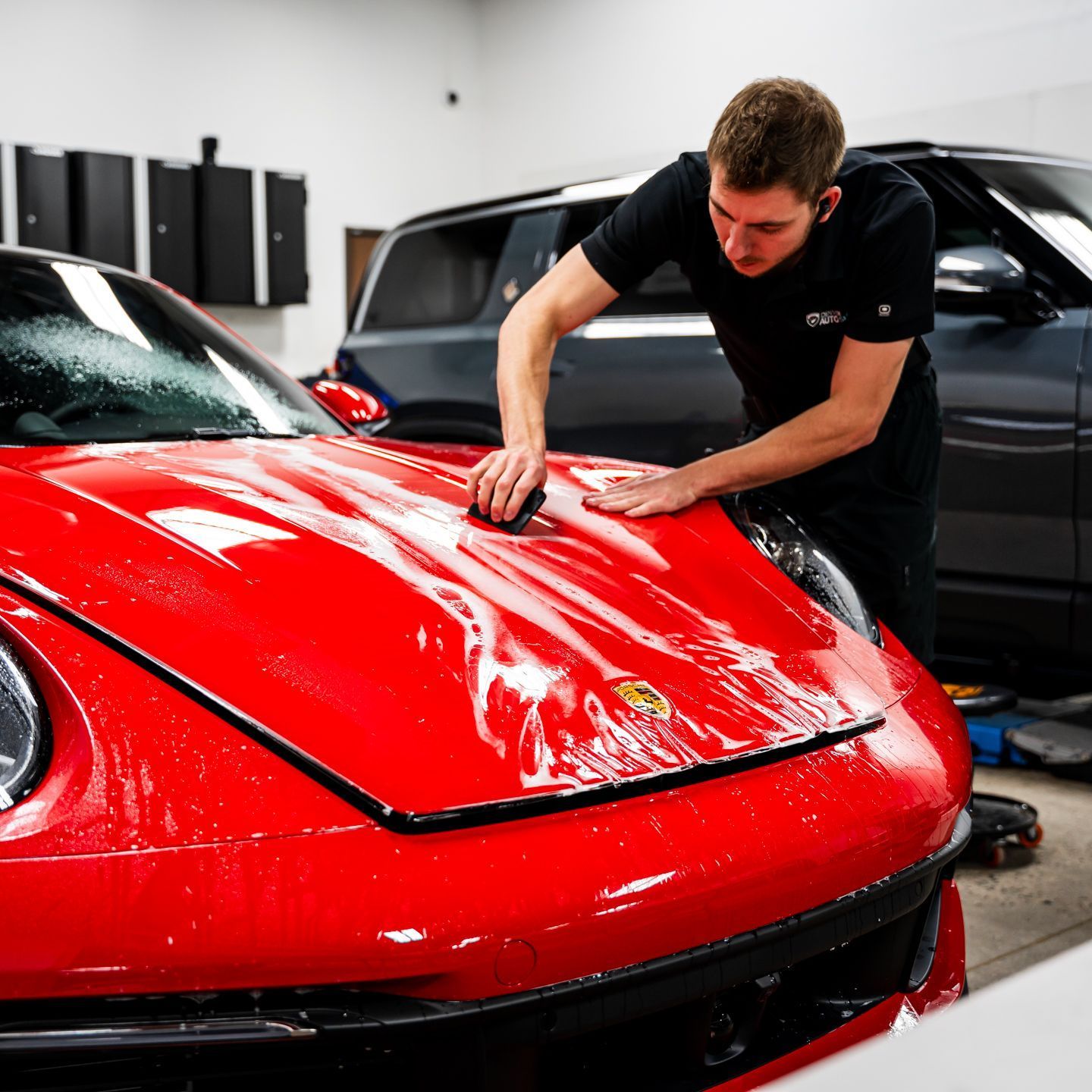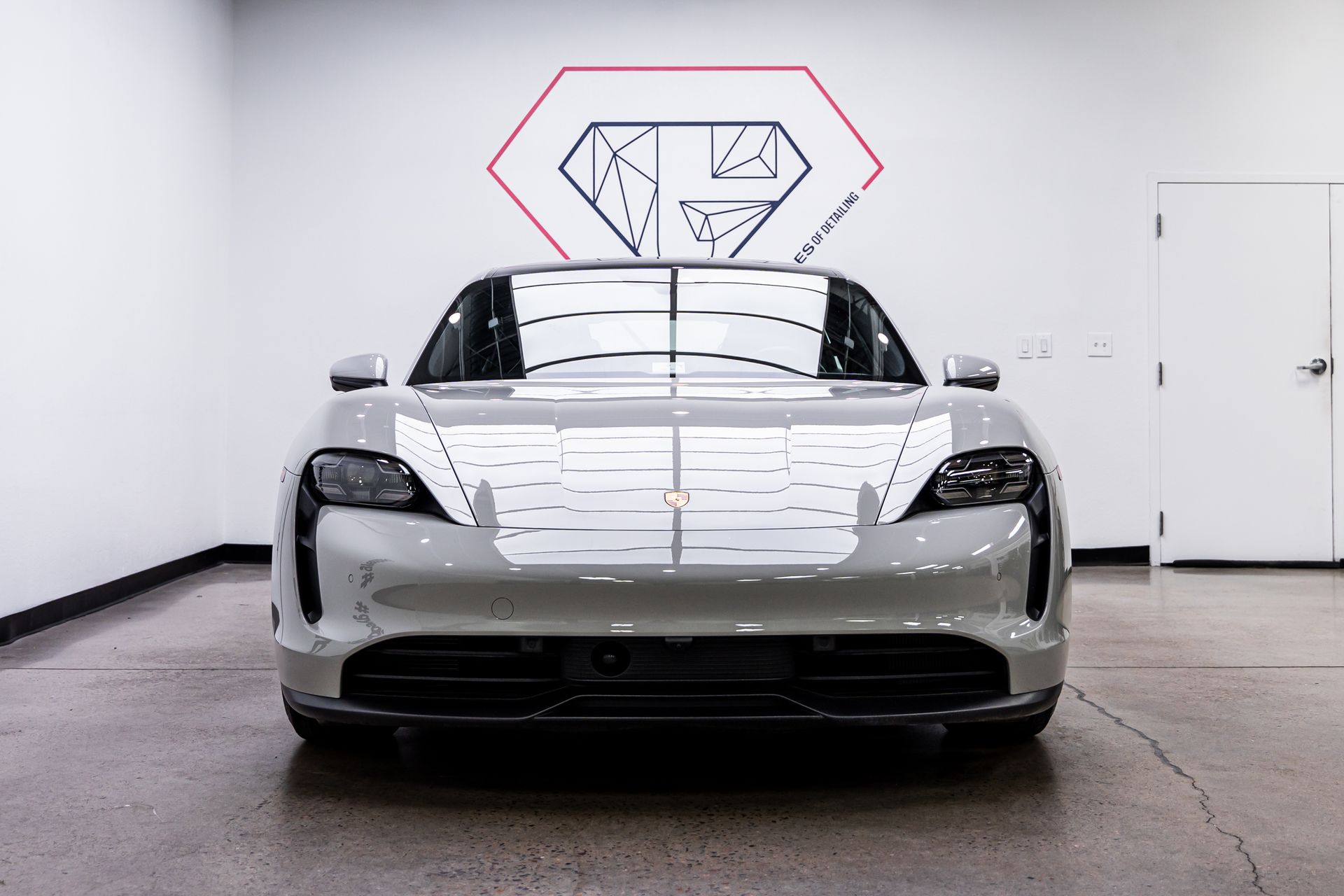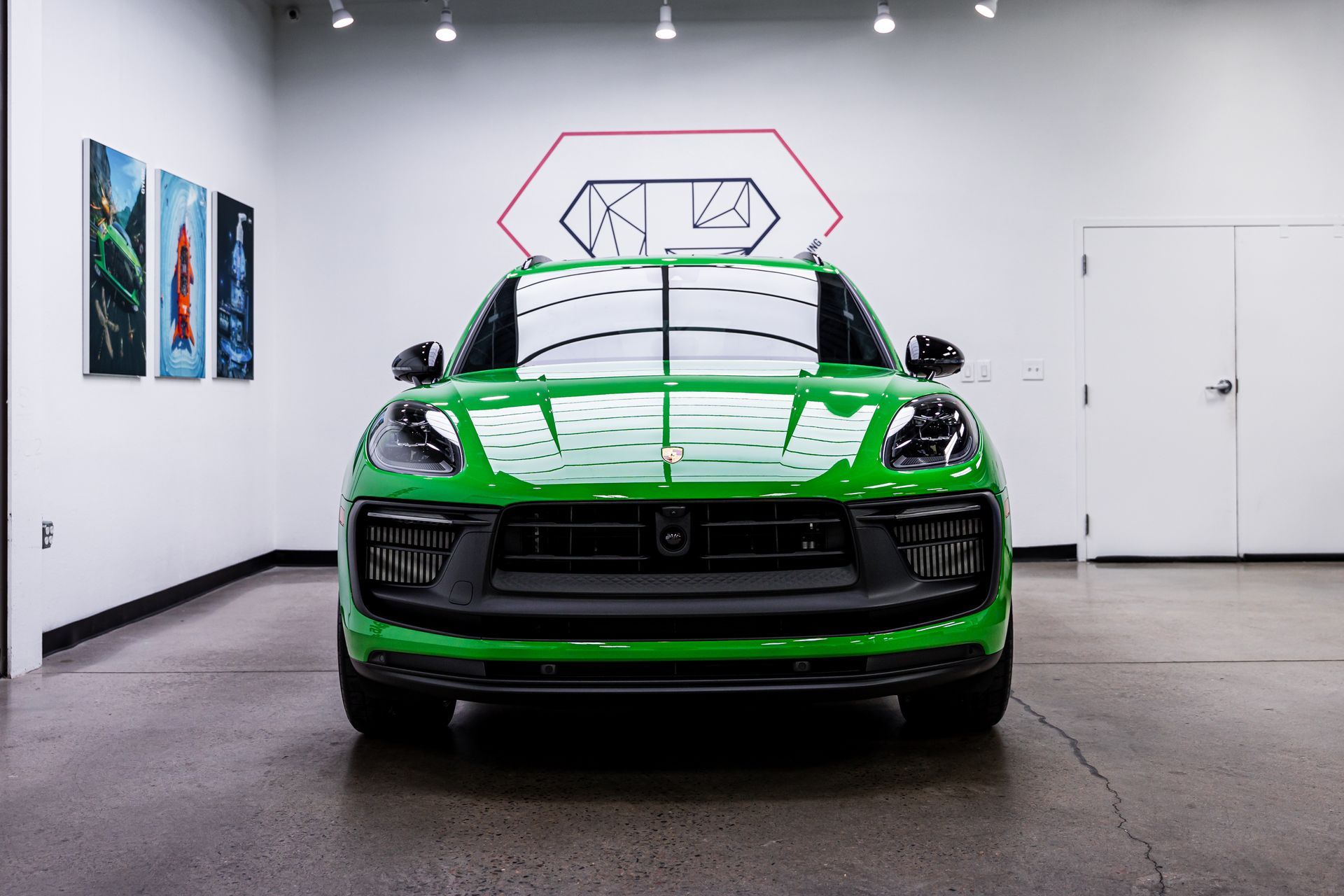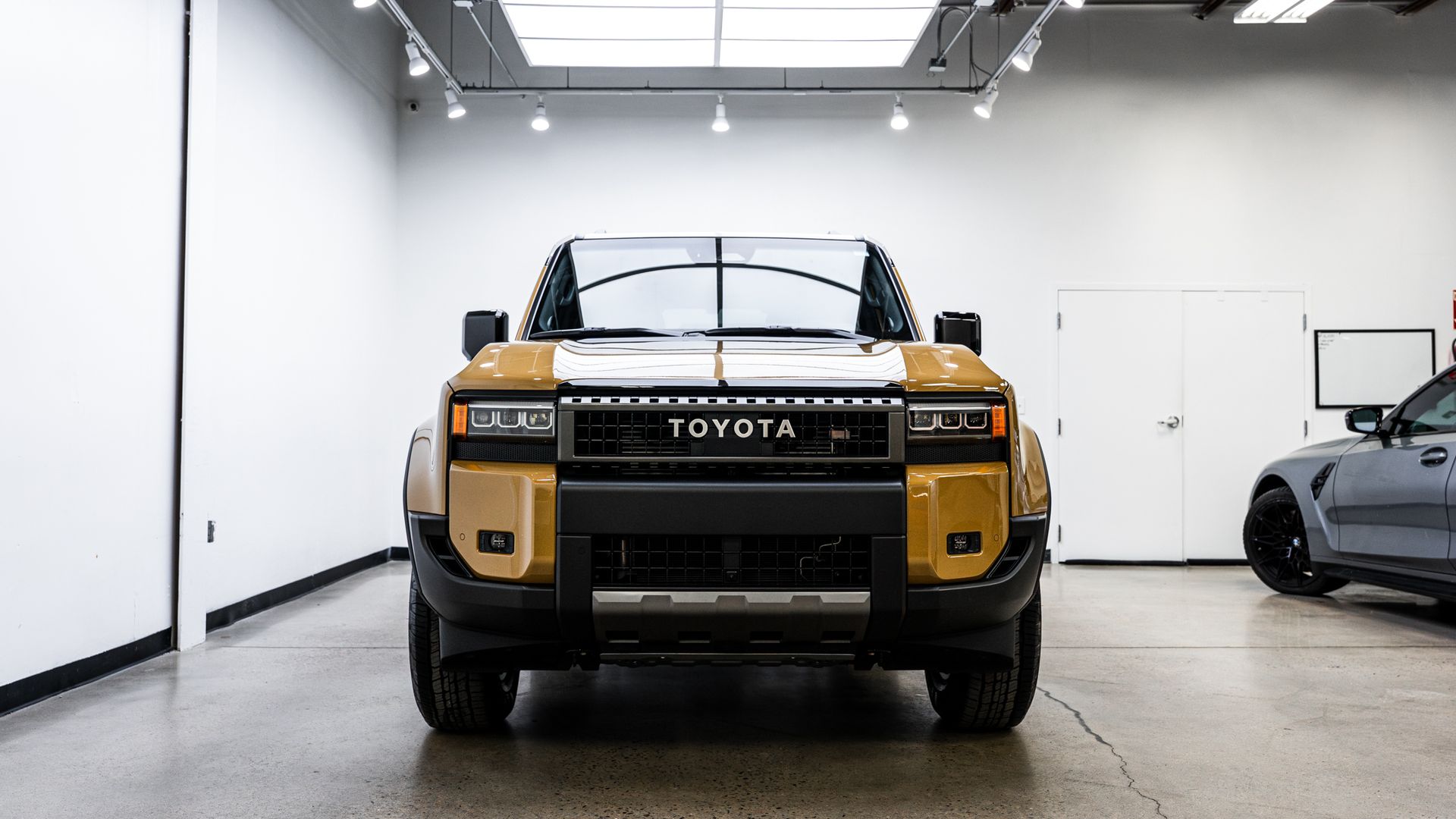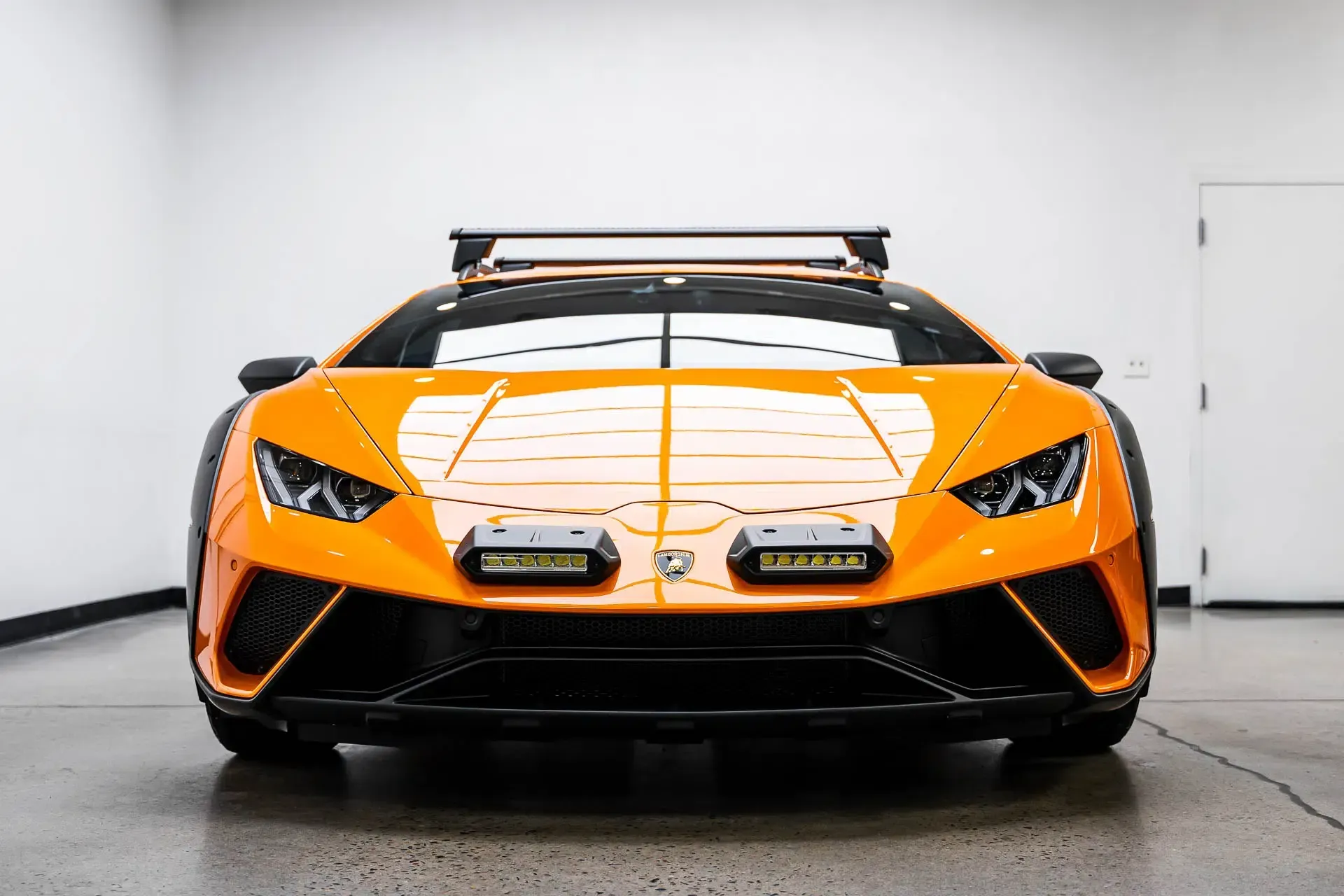Professional Installation Matters for Long-Lasting PPF: Benefits of Expert Application
CALL (720) 662-8520
GET A FREE ESTIMATEWhen it comes to protecting your car's paint, applying paint protection film (PPF) might look like a simple peel-and-stick job—but it's really much more than that. The difference between a flawless finish that lasts for years and a bubbled, peeling mess often depends on who installs it. Professional installation isn't just about convenience; it's about making sure the film fits perfectly, adheres properly, and holds up through daily wear and tear. Understanding why expert application matters can save you time, money, and frustration down the road.
Professional installation of PPF is crucial because skilled installers use precise surface preparation, advanced cutting technology, and controlled environments to ensure flawless application without bubbles, wrinkles, or edge lifting. This expertise significantly extends the film's lifespan—often lasting seven to ten years—while maintaining optimal protection against road debris, UV damage, and environmental contaminants that are particularly harsh in Denver's climate.
Why Professional PPF Installation Makes All the Difference
Applying PPF might seem straightforward at first glance—after all, it's just a clear film laid over your car's paint. However, this simplicity is deceptive. Without specialized training, professional-grade tools, and controlled conditions, even minor mistakes can become costly long-term problems. Professional installers bring years of experience that drastically reduce risks such as air bubbles, wrinkles, or improper adhesion that often plague amateur attempts. These defects spoil the appearance and compromise protection, causing premature peeling or lifting of the film. For Denver drivers who face intense UV exposure from our altitude and harsh winter conditions with road salt, these installation flaws can accelerate film degradation even faster.
One cornerstone of expert application is the preparation phase. Professionals meticulously clean and prepare the vehicle surface to ensure it's free from dust, oils, or residues. Even microscopic particles trapped beneath the film create gaps where moisture can accumulate, ultimately degrading both the film and your vehicle's paint. This attention to detail requires more than household cleaning—it demands automotive-grade products and precise environmental controls. Humidity levels between 40 and 60 percent and temperatures maintained around 20 to 25 degrees Celsius minimize risks of bubbling or adhesive failure during installation.
Beyond preparation, customization plays a critical role. Advanced software and cutting-edge plotters allow professionals to craft custom-fit PPF templates tailored exactly to your vehicle's contours. Door handles, mirrors, bumpers, and other complex areas all receive precise coverage without overlapping edges or exposed areas vulnerable to dirt intrusion. These seamless fits make visual differences nearly invisible while reinforcing wear-prone sections with edge-wrapping techniques that extend durability. Achieving this level of craftsmanship manually is exceedingly difficult due to the complex curves and angles on modern vehicles, especially premium brands like BMW, Porsche, Tesla, and Mercedes.
Certain tools unique to professional shops—such as heat guns with calibrated temperature controls and soft-edged squeegees—reduce stress on the film during stretching and setting. Heat guns operating carefully within the proper temperature range soften the PPF, allowing it to conform snugly without risking burns or weakening adhesives. This precision ensures the protective layer adheres consistently over years despite changing weather or road conditions.
The Expertise and Precision Behind Professional Application
Professional installers don't simply place a film on your car—they orchestrate a complex process that demands both technical know-how and careful attention to detail. Years of specialized training teach them how to manage the film's unique properties: its stretchability, thickness, and adhesive behavior under different temperatures and on different surfaces. These factors influence whether bubbles form, edges lift, or the film wrinkles—common issues that inexperienced installers often encounter. The application environment plays a crucial role as well. Professionals work within controlled settings where humidity and dust are minimized. This prevents contaminants from becoming trapped beneath the film, which can weaken adhesion or create unsightly blemishes. Without such controls, even the highest quality film is vulnerable to early failure.
Moreover, professionals employ tools designed specifically for precision. Adjustable heat guns help gently warm the film so it conforms seamlessly around curves without overstretching or tearing. Specialized squeegees push out air pockets and ensure smooth bonding between film and paintwork. Unlike trying to make do with household items, these professional tools significantly reduce error rates. Another crucial advantage is how skilled technicians address your vehicle's design nuances. Not all cars have smooth, flat panels. Many feature aggressive contours, sharp edges, and recesses that complicate application. Seasoned installers anticipate these challenges and adjust their techniques accordingly—for example, using edge-wrapping methods that tuck the film securely around corners to prevent lifting. Precision application also minimizes accidental paint damage during installation—a risk that many overlook. Proficient installers use protective tools such as knifeless tape that scores films without contacting paint directly. This reduces the odds of scratches or cuts even when adjusting fit or trimming excess material close to body lines.
Key Benefits of Expert PPF Application
One of the foremost advantages of having a professional apply your paint protection film is enhanced durability. Unlike amateur installations, which frequently suffer from improper adhesion or trapped air bubbles that compromise effectiveness, professionally applied PPF is designed to withstand the harsh realities of daily driving in Denver. The multi-layer structure—with its UV-resistant top coat, impact-resistant middle layer, and engineered adhesive—works in harmony when installed correctly, allowing the film to resist road debris, weather fluctuations, and sunlight damage far better over time. Professionally installed films demonstrate significantly longer lifespans than their amateur counterparts—a remarkable difference that translates directly into prolonged paint protection and fewer replacements or repairs. This longevity often matters most when you consider the cost and effort it saves in the long run. Every step—from preparing a perfectly clean surface to working within a controlled environment—affects how well the film settles and bonds with your vehicle.
Professional installers don't just apply the film; they meticulously tailor each piece to fit your vehicle's unique contours. Using advanced custom-cutting software, they create templates that match every curve precisely. This precision prevents common issues like exposed edges where dirt can accumulate or film lifting can occur. Additionally, their trained hands utilize specialized tools to score the film safely without risking any damage to your vehicle's paint, an accident more likely in inexperienced hands. Beyond durability, expert application significantly enhances the cosmetic appearance of your car. A professionally applied PPF offers seamless visual integration that preserves your vehicle's aesthetics. Amateur jobs with wrinkles or visible bubbles undermine not only protection but also looks. Skilled installers ensure a flawless finish with virtually invisible edges and no unsightly imperfections. Advanced techniques like edge wrapping further enhance both protection and appearance by hiding raw film edges beneath curves and recesses.
To maintain this pristine look over time, professionals recommend routine care using pH-neutral automotive products and gentle microfiber cloths. Harsh chemicals or abrasive cleaning can degrade even premium films faster if not handled properly. Some installers suggest applying ceramic coatings on top of PPF to add an extra barrier against contaminants like tree sap or bird droppings, combining two layers of defense for unparalleled protection. Investing in professional PPF installation contributes significantly to maintaining your vehicle's resale value. A well-preserved exterior free from chips, scratches, and fading tells potential buyers that the car has been cared for meticulously. Because high-quality films guard against environmental damage that would otherwise necessitate costly repainting or touch-ups, vehicles treated professionally generally command higher prices in the resale market.
Although professional installation carries a higher initial price tag compared to amateur attempts—which might tempt budget-conscious drivers—the payoff becomes clear when factoring in reduced defects and greater peace of mind. Expert PPF installation ensures your vehicle stays protected and looking great with minimal fuss for years. It reduces risks of installation errors such as bubbling or premature lifting that can quickly negate any savings from skipping professional help.
Understanding the Risks of Amateur Installation
One of the biggest draws of attempting PPF installation without professional help is the perceived upfront affordability, but that initial savings often blinds vehicle owners to hidden hazards that show up over time. When you tackle a PPF installation without professional tools or training, you open the door to common problems such as bubbles trapped beneath the film, wrinkles that distort the look, and edges that lift prematurely. These flaws aren't just cosmetic—they allow contaminants like dirt and moisture underneath the film, accelerating wear and weakening adhesion. More importantly, amateur installations typically use bulk sheets and simple tools—not the advanced cutting machines or heat guns professionals rely on. Without a custom-cut template tailored exactly to your vehicle's contours, it's nearly impossible to get perfect alignment. The edges often expose raw film surfaces, making them prone to dirt accumulation and eventual lifting.
Amateur installers usually lack access to controlled environments as well. Humidity or temperature fluctuations during application can interfere with adhesion and flexibility. Over time, these shortcomings lead not only to visual defects but also to an accelerated need for repairs or reinstallation. A typical story echoes across automotive forums: frustrated car owners spend hours wrestling with bubbles and wrinkles only to peel off sections prematurely and start over. Worse still, the cost of removing failed PPF from a vehicle—without damaging paint—can be higher than initially installing professionally applied film. What might have saved a few hundred dollars initially ends up costing significantly more when factoring in reinstallation fees, potential paint damage, and lost time.
For consumers considering PPF installations, tempering expectations about what an amateur approach can deliver is essential. Carefully weighing upfront cost savings against long-term durability and appearance makes a big difference in overall satisfaction. Documenting your vehicle condition beforehand with high-resolution photos or videos can help track potential damage if removal becomes necessary later on. Most importantly, seek out reputable shops with proven expertise that use modern tools for both cutting and installation to ensure your investment yields lasting protection rather than disappointment.
Choosing the Right Professional Installer
Selecting the right installer is the backbone of a successful paint protection film application. It's not just about hiring someone to apply a film on your car; it's about entrusting your vehicle's finish to someone with the skill, tools, and environment necessary to ensure flawless results that last. This choice directly impacts how well your PPF performs over time—not only in protection but also in appearance. Start by researching local professionals thoroughly. Online platforms and automotive forums are valuable sources of genuine feedback from past customers. Look beyond star ratings and read detailed reviews that mention specific installation qualities such as precision alignment, bubble-free finishes, and attention to detail in prep work. These insights give you a real idea of what to expect and reduce the guesswork.
Credentials matter far more than most car owners realize. Certification from established training programs signals commitment to professional standards and ongoing education. Equally important is confirming your installer employs state-of-the-art technology. Software-guided plotters create custom templates tailored to every curve of your vehicle, reducing error margins dramatically compared to manual cutting. Additionally, premium shops maintain climate-controlled facilities where temperature and humidity are monitored to optimize adhesive bonding—conditions impossible to replicate in unregulated garages. Without these tools and controlled environments, films may peel prematurely or trap contaminants beneath them, leading to bubbles or discoloration. Precision at every step—from surface prep through final edge-wrapping—is vital because even minor misalignments can compromise both aesthetics and protection longevity.
Evaluating Installation Quality
Right after your paint protection film is applied, a careful inspection isn't just a courtesy—it's essential. This is the moment when you can detect any imperfections that might detract from your vehicle's appearance and potentially undermine the film's protective function over time. A well-installed PPF should look like an invisible shield, flawlessly hugging every curve without calling attention to itself. One of the most telling signs of expert work is how the edges of the film appear. High-quality installation features seamless edges that blend perfectly with your car's paint. There should be no unsightly overlaps where layers stack unevenly or gaps where the film stops short, leaving paint exposed to damage. This requires both skill and precision cutting—something professionals achieve using advanced software and custom templates.
Next is checking for bubbles or air pockets under the surface. These bubbles are more than just cosmetic flaws; they create weak spots where dirt and debris can collect and moisture can infiltrate, which accelerates wear and reduces adhesion. A bubble-free finish signals that the installer carefully applied the film with proper techniques in a controlled environment to avoid trapping contaminants. Another crucial element is how snugly the film fits to your vehicle's contours. Premium PPF follows every ridge, dip, and curve exactly—like a custom-tailored suit for your car. This perfect fit prevents lifting at edges, reduces the risk of peeling, and minimizes places where dirt could invade beneath the film. Installers who skip fine-tuning this step often leave uneven tension or slack that shortens the lifespan of the protection. For customers, it's wise to bring along good lighting during this post-installation check and don't hesitate to ask for adjustments if anything looks off. Professional installers typically offer warranties precisely because they stand behind their craftsmanship and will correct errors without delay.
Protecting Your Investment for Years to Come
Professional paint protection film installation tends to carry a higher upfront cost, typically ranging from about fifteen hundred to over three thousand dollars depending on how much of your vehicle you want covered and its particular design challenges. This might feel like a significant investment, but the difference goes beyond just cost. One critical advantage you gain with professional installation is the extended lifespan of the film—often lasting seven to ten years, which vastly exceeds the two to three years expected from amateur applications. This longevity reflects not only superior application techniques but also controlled conditions that reduce premature wear. The warranties that accompany professionally installed PPF further protect this investment. Beyond cosmetic guarantees, these warranties commonly cover issues such as bubbling, peeling, yellowing, or cracking—troubles that can quickly undermine the purpose of applying paint protection film. These safeguards mean that if flaws develop due to material or installation defects during the warranty period, you're typically eligible for repairs or replacements at no extra charge. This peace of mind effectively shifts potential future costs away from you.
Vehicle complexity plays a large role in cost variation among professional installations. Covering intricate curves or full-body surfaces demands additional skill, longer labor hours, and sometimes custom cutting patterns produced by advanced software systems. Shops with climate-controlled environments designed to minimize dust and regulate temperature during installation generally charge more but deliver superior results. You're paying for expertise combined with high-end equipment that prevents common pitfalls like trapped debris or improper adhesion. When comparing installers, look carefully at the details behind their warranty terms. Ask what exactly is covered and for how long. Also inquire about their experience handling your vehicle model and whether they use tools designed to reduce damage risk. Warranties voided by improper maintenance or unauthorized work need clarification upfront so you can preserve coverage.
Choosing an installer isn't merely picking the cheapest or closest option—it's investing in peace of mind that your vehicle's finish is guarded by experts with proven skills and equipment fine-tuned for this specialized craft. This decision sets the stage for years of satisfaction with your PPF investment, especially in Denver's demanding climate, where protection against UV damage, road salt, and environmental wear is essential for maintaining your vehicle's showroom appearance and long-term value.
Precision PPF Installation in Golden, CO
Protect your vehicle’s flawless finish with Denver Auto Shield’s
premium paint protection film in Golden, CO. Our team specializes in precision PPF installation that guards against rock chips, road debris, and weather exposure—keeping your car’s paint smooth, clean, and vibrant for years. Using top-tier materials and expert application techniques, we ensure your vehicle stays showroom-ready no matter where you drive.
Learn more about our professional PPF packages today and give your car the lasting defense it deserves!
